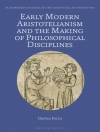In Power Without Knowledge: A Critique of Technocracy (2019), Jeffrey Friedman presented a sweeping reinterpretation of modern politics and government as technocratic, even in many of its democratic dimensions. Building on a new definition of technocracy as governance aimed at solving social and economic problems, Friedman showed that the epistemic demands that such governance places on political elites and ordinary people alike may be overwhelming if technocrats fail to attend to the ideational heterogeneity of the human beings whose control is the object of technocratic power. Yet a recognition of ideational heterogeneity considerably complicates the task of predicting behavior, which is essential to technocratic control-as Friedman demonstrated with pathbreaking critiques of the homogenizing strategies of neoclassical economics, positivist social science, behavioral economics, and populist democratic politics.In Technocracy and the Epistemology of Human Behavior, thirteen political theorists, including Friedman himself, debate the implications of Power Without Knowledge for social science, modern governance, the politics of expertise, post-structuralism, anarchism, and democratic theory; and Friedman responds to his critics with an expansive defense of his vision of contemporary politics and his political epistemology of ideationally diverse human beings.This book was originally published as a special issue of the Critical Review.
Paul Gunn
Technocracy and the Epistemology of Human Behavior [PDF ebook]
The Debate over Power Without Knowledge
Technocracy and the Epistemology of Human Behavior [PDF ebook]
The Debate over Power Without Knowledge
¡Compre este libro electrónico y obtenga 1 más GRATIS!
Idioma Inglés ● Formato PDF ● Páginas 384 ● ISBN 9781000784053 ● Editor Paul Gunn ● Editorial Taylor and Francis ● Publicado 2022 ● Descargable 3 veces ● Divisa EUR ● ID 8520808 ● Protección de copia Adobe DRM
Requiere lector de ebook con capacidad DRM












